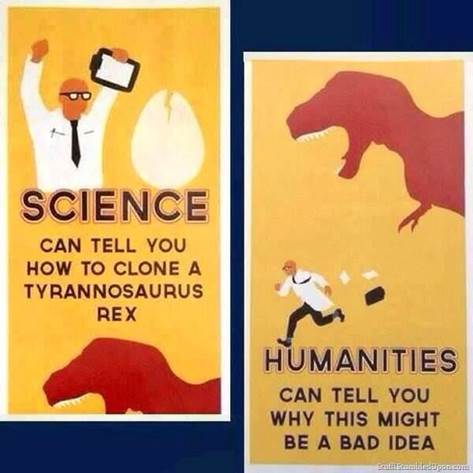If this deer, spotted from our bedroom window, doesn’t revise its beliefs about humans, its life will not be long. However, its evidence base may not yet support the notion that humans are dangerous.
On Wednesday this week, Judith Collins announced the Government wants the Marsden Fund to focus on core scientific research that helps lift our economic growth and contributes to science with a purpose. The corollary is the Fund will no longer support research in the Humanities or Social Sciences.
I felt hugely disappointed. This government’s lack of interest in humanities or social sciences seems like a return to the dark ages. The Marsden Fund was established in 1994 to support excellent research; our country no longer wants excellent humanities or social sciences research?
As the resultant furore has played out in the research community and media, I have tried to analyse why I am upset and whether it’s for a good reason. This has proven surprisingly difficult. There is a web of concepts and arguments in this mix. My quest has led me to consider mantras from the era in which the Marsden Fund was created and think about whether I still believe in them.
The trickle-down effect
In the 1980s and early 1990s, as the New Zealand government changed everything, we were fed the line that spending by rich people would benefit the economy as a whole, trickling down to the poorer people. This justification was used for policies that privileged the wealthy. Subsequently, it became clear nothing good trickles down. However, as a newly-fledged graduate in the government research funding organisation in 1993, I had no evidence from which to disbelieve this mantra. I can remember myself quoting it to others, for which I am very sorry.
I no longer believe in trickle-down.
Sci-tech is essential to a thriving economy and to growing our economy
This was the basis of the 1980s-1990s science reforms. It’s also what Judith Collins is saying today and her rationale for changing what the Marsden will fund.
If this were true, wouldn’t you think thirty years of government policy and scitech activity based on this principle should have delivered the thriving and expanding economy we were and are promised? It hasn’t; that’s why Judith is saying we need to focus even harder on sci-tech.
Doesn’t doing the same thing you have always done, get you to the same place you have always got to?
There are, of course, many reasons why sci-tech is important in our economy. However, many of our sci-tech successes require cheap and plentiful fossil fuel energy to enable them; the scale of economies are indisputably linked with the quantum of available energy. Nowhere in the world is there a wealthy country that consumes little energy nor a poor country that consumes a lot.
Maybe scitech can help us avoid the inevitable coming decline in energy availability and/or increase in energy cost as we try to avoid fossil fuels? Maybe…but the ‘solutions’ often require even more energy, and more consumption of resources…which doesn’t seem the right path in a resource-constrained world.
I no longer believe unequivocally in sci-tech as an economic saviour.
The best scientific discoveries are serendipitous and discovered in research activities not specifically directed towards human benefit
This belief is the basis of the Marsden Fund but is at least a couple of hundred years old – that scientists discover interesting and unexpected things ‘accidentally’ while investigating something else. This undoubtedly happens. However, the ‘serendipitous’ argument often now focuses on the need for ‘undirected’ research i.e. research undertaken with no specific societal good in mind, based on the theory that undirected research leads to more serendipitous findings and/or better ones.
I reckon this is about as true as creative endeavours requiring moments of inspiration, so people wait to be inspired. Actually, you just need to get on with the job – the best way to write a novel is sit down and write, every day. Not to wait for the creative muse to strike. And I believe, if you are intrinsically a researcher, you will have novel ideas whether you are supposed to be developing a pharmaceutical, or supposed to be fiddling around in your lab entertaining yourself.
In the days of the New Zealand Department of Scientific and Industrial Research, when researchers did a lot of undirected fiddling around (and had a lot of fun), were there a plethora of massive intellectual discoveries we are still reaping the benefits from?
In the days since the 1980s science reforms, since research and science has been directed to be useful, have we seen an increased plethora of massive intellectual discoveries we are reaping the benefits from?
My observation is that, in the sixty-odd years of the DSIR and the 35 years since the reforms, scientific research has produced some exciting ideas, some useful ideas, some underpinning concepts, and a whole lot of activity that is not wonderful, but not terrible. Science falls into a normal distribution, or Bell curve, like so many other phenomena, no matter how hard people try to skew the outcome by picking the best proposals (noting I make a living out of helping people write better proposals).
I don’t believe undirected research is the key to economic success, or to any particular success although it’s a great way for scientists to have fun.
My conclusion?
The Marsden Fund is a nice-to-have, but whether it is essential to our country’s future, I’m not so sure.
I also doubt whether banning humanities and social sciences from the Marsden fund will drive our economy forward because so much more ‘hard science’ will be done.
However, if you are a humanities or social science researcher, the loss of Marsden funding is very sad because it was likely your only significant source of research funding outside your institution. Research is expensive. If you are a researcher you need to get funding to do complex and large projects. It’s going to be even tougher for humanities and social sciences researchers to undertake their role.
What I do believe, is removing humanities and social sciences from the Marsden is sad because we need to create a range of ideas in our society. Science is one way of looking at the world. Creative arts is another way. Humanities and social sciences provide additional perspectives.
We have come to believe diversity is good, haven’t we? Biodiversity is good. Gender diversity is good. Ethnic diversity is good. Diverse philosophies and investigative practices are also good. Diversity is important, interesting and a critical part of societal resilience – diversity means when things go wrong, you have alternative approaches to solve problems.
We need diversity, in the Marsden Fund and in life. Just imagine a world populated solely by Judith Collinses! Although, if you want diversity, I will generously throw a few David Seymours into the mix.


Discover more from Jane Shearer
Subscribe to get the latest posts sent to your email.




